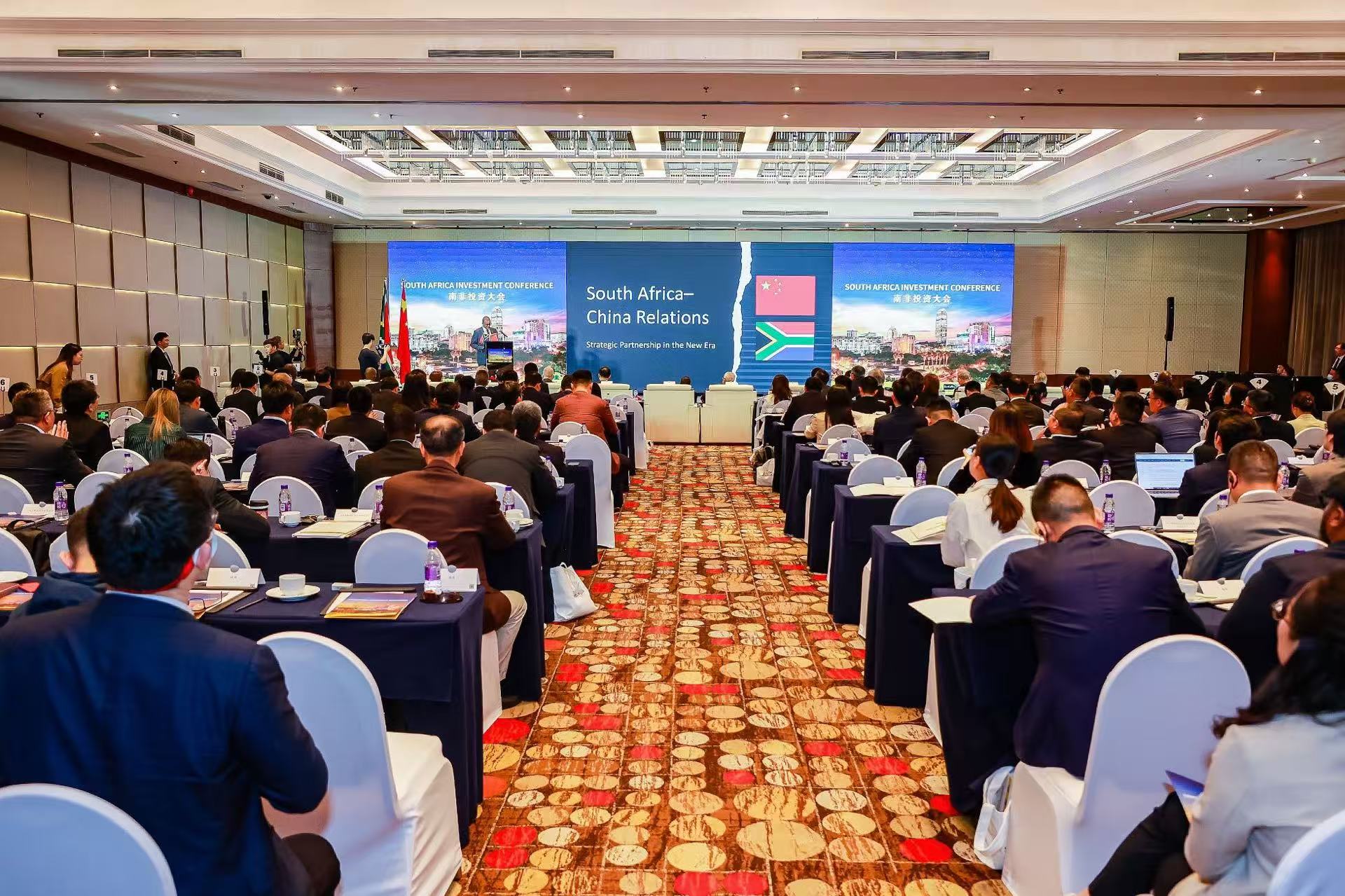US tariffs impact emerging economies; China-Africa cooperation to strengthen: business leaders

Business representatives attend an investment conference themed “Investing in South Africa to build a high-quality South Africa – China community for shared prosperity in a shared future” in Beijing on May 7, 2025. Photo: Courtesy of the Embassy of South Africa in China
While the US-provoked trade war may negatively impact emerging market economies like China and Africa, it will also catalyze stronger cooperation between China and Africa in trade and investment in major sectors of manufacturing, green energy and digital technology, African and Chinese business leaders and experts told the Global Times.
The tariffs imposed by the US produce a significant impact on South Africa, as the US is one of its major markets for automobiles, agricultural products and minerals exports, while the automotive industry offers a large number of job opportunities in South Africa, Lester Bouah, chief director of Investment Mobilization and head of Energy One Stop Shop at the Department of Trade, Industry and Competition, told the Global Times on the sidelines of an investment conference held by the Embassy of South Africa in Beijing on Wednesday.
Under the theme of “Investing in South Africa to build a high quality South Africa–China community for shared prosperity in a shared future,” the conference highlighted investment opportunities for Chinese investors across various sectors including finance, infrastructure development, agriculture, green technology, energy and mining.
Bouah said that the US tariffs do not help anybody, and nothing can be gained from elevated tariffs. “Hopefully the American people will wake up and realize there's something wrong,” he said, adding that economic globalization will not stop.
Bouah emphasized the importance of the Chinese market for South African goods and services that are seeking to capture the consumption potential of the population of more than 1.4 billion. He added that the two countries are working on identifying 100 products that Chinese consumers may have an appetite to buy from South Africa.
Apart from trade, South Africa can become the springboard for Chinese investment to enter the sub-Saharan African region thanks to its banking system, infrastructure and market, Bouah noted, while highlighting the growing role played by the Belt and Road Initiative.
In terms of the future growth points, Bouah said that cooperation could be enhanced in skill and technology sharing in many emerging sectors. Taking cooperation in solar and wind as an example, in addition to land investment, Bouah emphasized the need to build up the capacity for components manufacturing, and said that he wished to start manufacturing some products locally and supplying the country as well as the continent.
In the interview, Bouah highlighted the cooperation potential between the two countries in new-energy vehicles along with artificial intelligence, adding that he also uses DeepSeek to facilitate his work more efficiently.
Building up supply chains
Yu Qing, chief investment officer of the China-Africa Development Fund and chief representative of its South Africa representative office, highlighted the consumption potential of the African market will create more opportunities for Chinese products, digital solutions and infrastructure construction.
As the global supply chains undergo a systemic restructuring, Chinese enterprises are adjusting industrial layouts, opening new avenues for China-Africa industrial cooperation, particularly in labor-intensive sectors like textiles, electronics, and automotive components, Yu told the Global Times.
Yu noted that many African countries are increasingly incorporating the Chinese yuan into their foreign exchange reserves amid the steady progress of the yuan’s internationalization. Chinese companies are adopting the yuan more widely in economic and trade exchanges with Africa, significantly reducing transaction costs, he said.
Yu said that Africa has the potential to become a new destination for global manufacturing relocation, driven by its demographic dividend, accelerating urbanization pace, and a series of government policy incentives. When it comes to the prospects for collaborative manufacturing between China and Africa, Yu said that the bid goes beyond mere relocation of production capacity, with more efforts to be placed on technology transfer, localized operations, and industrial chain collaboration in Africa.
Regarding the specific fields in Africa that could be the most promising growth points for Chinese companies, Yu said that traditional sectors such as infrastructure, manufacturing, and agriculture will remain key investment priorities for Chinese businesses in Africa, while green energy, health care, cloud computing, fintech, and the marine economy will emerge as new engines driving collaborative development between China and Africa.
Rules-based business system
During the interview, Bouah stressed the importance of having a rules-based business system, adding that the absence of a rules-based system disproportionately affects the developing countries. He noted that countries, particularly emerging market economies like the BRICS should work together to maintain their economic integration and trade globalization.
Bouah said that BRICS can look at better ways of interacting with each other, such as by using local currencies for payments. He noted the importance of conducting talks between partners to resolve issues following the BRICS expansion.
For Africa’s future development, strengthening China-Africa collaboration and enhancing cooperation among Global South nations, particularly through platforms like the BRICS mechanism, would be of great importance, Song Wei, a professor at the School of International Relations and Diplomacy at Beijing Foreign Studies University, told the Global Times on Wednesday.
Mutually beneficial partnerships among Global South economies represent a critical opportunity for Africa, Song noted. On the one hand, BRICS nations can address economic challenges by deepening their trade and investment ties. On the other hand, innovative policy tools – such as local currency settlement tools and trade facilitation measures – will further consolidate their cooperation, Song said.
The meeting of BRICS Ministers of Foreign Affairs/International Relations was held in Rio de Janeiro, Brazil, from April 28 to 29, which articulated a BRICS voice of supporting multilateralism, upholding the multilateral trading system and opposing unilateral bullying, Chinese Foreign Ministry spokesperson Guo Jiakun said on April 30.



